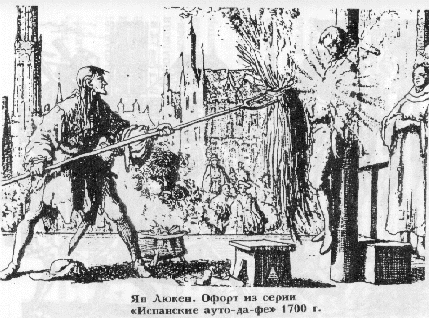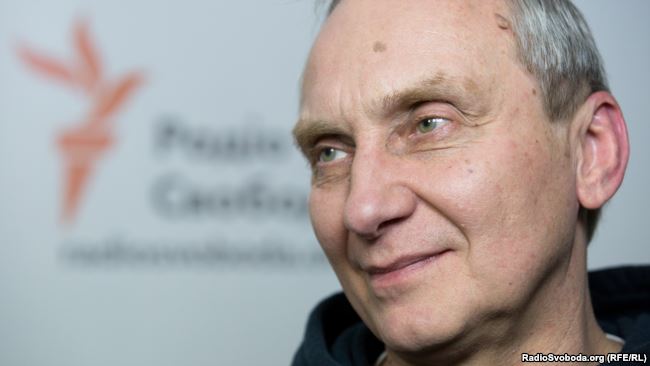 It seems everyone has already noted how firm and fanatical people in Donbas are in their political convictions. Politics in their consciousness has long acquired the characteristics of religion which they ardently protect from any heresy. What is the matter here?
It seems everyone has already noted how firm and fanatical people in Donbas are in their political convictions. Politics in their consciousness has long acquired the characteristics of religion which they ardently protect from any heresy. What is the matter here?
The matter lies in historical peculiarities. The orthodox tradition, as opposed to the cities of the middle strip of Russia and Central Ukraine, was practically absent in the cities of Donbas which were built and populated for the most part in Soviet times, there were no churches or monasteries. Meanwhile the need for religion did not disappear within the citizens of the eastern regions of Ukraine. And the solution presented itself. The place of Christianity in the people’s souls was taken by Soviet dogma.
As the USSR deteriorated, the Soviet political reality deteriorated as well. The CPSU disintegrated into several quasi-socialist projects, each of which more or less successfully integrated into the Ukrainian political system. The CPU, SPU, PSPU that emerged at first turned out to be too archaic and grotesque of formations, and therefore did not dominate for a long time, relatively. They were replaced by a product which was more adapted to the new reality, which combined Soviet rhetoric and a capitalist essence – the Party of Regions.
Ukrainian journalists and political expert dedicated a lot of their attention to the phenomenon of this political power. For over ten years it have overall support among the citizens of eastern Ukraine and dominated in the region, regardless of anything. While the electorate of other political parties were quite critical in regard to them and rid them of support in case they did not merit the hopes the people had in them, the citizens of Donbas voted for the Party of Regions with fanatical stubbornness, regardless of its overtly destructive activities. Why were they so unshakeable? Because for an eastern voter, to change their political convictions would be to rescind their faith. To betray their own. Knowing this particularity very well, the regionals of Luhansk oblast even made up a motto in 2009: “Luhansk oblast does not change its convictions.” And they won the presidential elections.
As much as the opposition tried back then, no common sense worked on the electorate of Yanukovych and the Party of Regions. While the western voter was made to change their political preferences y corruption scandals and the politicians’ lies, in the east corruption crimes were perceived as absolutely normal. In history this occurrence had a very clear analogy – it was not customary to criticise the luxury and moral degeneration of the Church in Medieval Europe the same way.
When the national uprising in Kyiv swept away the criminal dictatorship, having destroyed the government of the Donbas criminal groups, in Donbas this revolution was viewed not as a change of political regime, but as a victory of Evil over Good. As is customary in such cases, the most dim and religious layers of society thought they had to stand on the side of the “good.” There were also unthinking callers which baited the crowd to rebel, and talented preachers that convinced the people’s masses of the rightness of such a step. This resulted in an average political crisis gradually growing into a medieval religious war.
Quite a lot has been written about the close familiarity of ancient religions and totalitarian political movements. For example, Erich Fromm went into detail about it, nothing that religion does not necessarily mean God and Sacred heritage, but frequently – a Leader and a party programme. It is obvious that the pro-Russian rebellion in Donbas undoubtedly has such an irrational religious foundation.
The absolute insanity of the black hundred which took up arms and rebelled against the very fact of the existence of the Ukrainian state is appalling. It is obvious that no logical arguments will work with them, and no facts can force them to critically re-examine their own position. It is absolutely senseless to start a discussion with the separatists, as where they come face-to-face with obvious contradictions in their own hand-drawn vision of the world, the dialogue usually ends, and aggression and violence emerge.
Of course, the supporters of the imperial ideology may argue that the enemy camp is also inadequate and “doesn’t want to hear Donbas,” but this is obviously not true. The supporters of European integration have always been much more predisposed to dialogue and never practiced terror against opponents who thought differently. Nobody on the territory of Ukraine persecuted the supporters of the Eurasian way before they started a civil war in the east. Nobody cut open the stomachs of Party of Regions and CPU members. Nobody took the supporters of the Customs Union hostage. Poroshenko’s electorate is quite able to critically talk about their candidate, as opposed to Putin’s supporters which feel his criticism quite painfully and aggressively. There is no personality cult for Poroshenko or any other of his associates in Ukraine, meanwhile the Russian chauvinists undoubtedly have a Putin cult.
However, Putin in this case is more of a prophet than a deity. He is not the centrepiece of the chauvinists’ religious picture of the world. Putin is only a part of a more global cult – the cult of the Russian World, which, in turn, includes the explosive mix of various cults: Stalin, the USSR, the victory in the Great Patriotic War, the Russian Orthodox Church, the Empire, the Tsar. The supporters of the Russian World behave like members of totalitarian sects. They are fanatically convinced of the truth of their own views exclusively, show intolerance to criticism and thinking differently, they justify any violence against opponents, they are unable to see obvious contradictions in their own views.
It is almost senseless to try and convince them that not all is as wonderful in Russia as they think. The Russia that the Donetsk separatists imagine has nothing to do with the real country. This is a completely different state, with a different people. The biblical Promised Land where, according to legend, there is sufficiency and prosperity. As opposed to Ukrainians, which are quite able to critically talk about the state of affairs in Ukraine and in general understand the objective situation in the country, Russian chauvinists live in an illusion of religious phantoms. To their mind, Russia is rapidly moving towards flourishing, Putin is an exceptionally successful leader of the country, and the entire world fears and respects Russia’s power. Meanwhile anyone who tries to doubt the idyllic construction is deemed a heretic. In the self-proclaimed medieval republics PRD and PRL a new inquisition, which employs torture against such heretics, is already working actively. Four cheers for the new Middle Ages!
To wit, it is not surprising that the primary irritant for the Russian chauvinists is liberalism – a political movement which is based on rationality and personal freedom, which was battled fanatically by medieval inquisitors.
What is the antidote for this opium that is poisoning human souls? Luckily, the recipe of the cure against the middle ages has long been invented. It is bloody and well-organised educational work and the increase of the population’s literacy. The increase in popularity of the black hundred moods in Ukraine happens in light of the fall of education quality and dominance of Russian propaganda materials which have flooded the Ukrainian market – from movies to books. Ukraine is being quite helpless in this regard so far. And it should have put up a quality whiled against this influx, and vaccinated the population with knowledge against the epidemic of Russian religious fundamentalism. Otherwise we will continue falling into the dark Middle Ages and oprichnina.
Once the Enlightenment in Europe managed to break the Inquisition’s spine and put an end to the total domination of the Church. Today the time has come for Ukrainian Enlightenment which will dispel the darkness of the suffocating Russian World. And everyone who values peace in the future should participate in it as much as they can.
Source: Durdom
Translated by Mariya Shcherbinina


